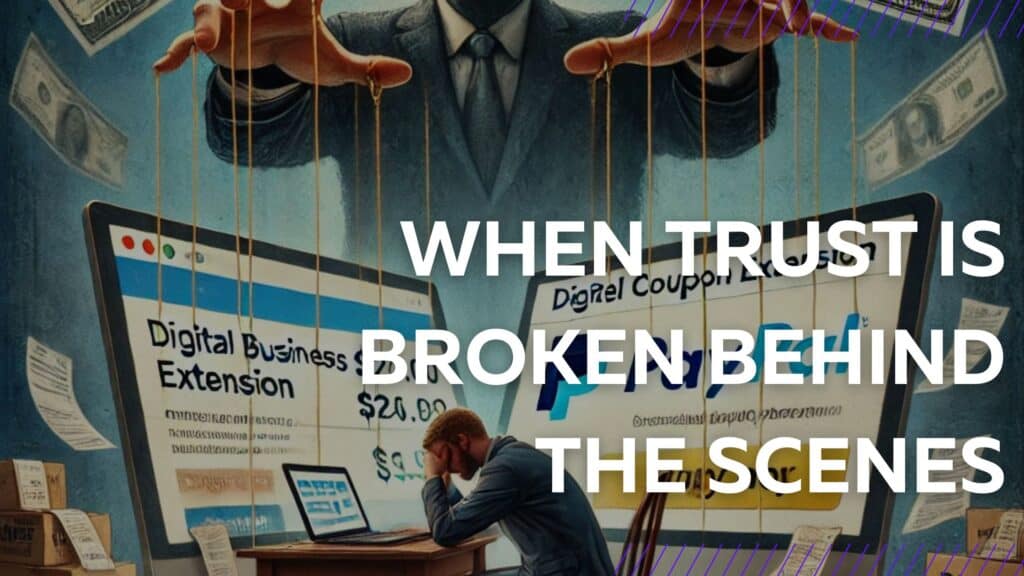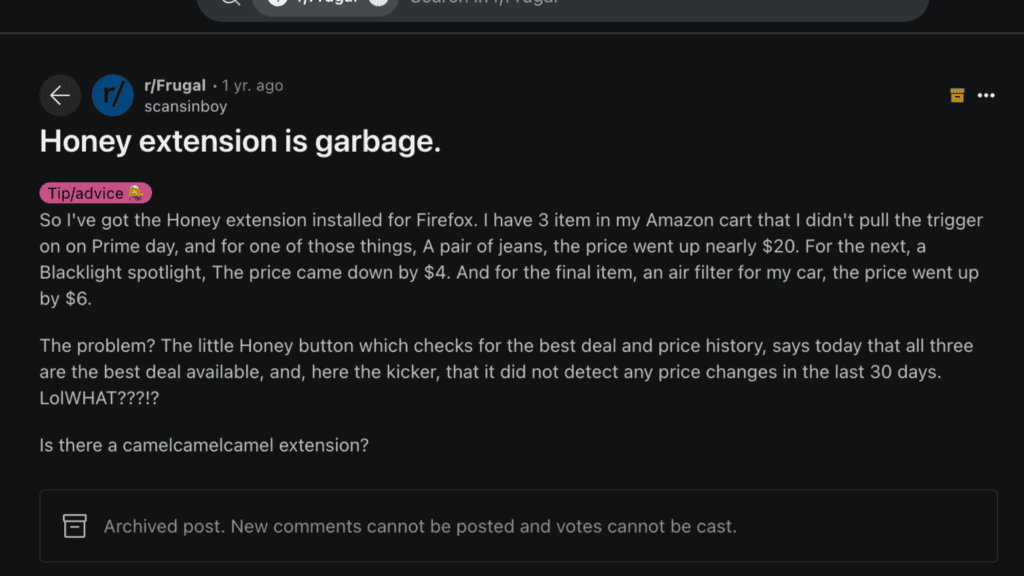The Honey Coupon Extension Scam: How PayPal is Undermining Trust and Hurting Entrepreneurs 🍯🤑
As entrepreneurs, we pour our time, money, and energy into building businesses that not only sustain us but also serve our customers with integrity and passion. Every dollar counts, every decision matters, and trust in our tools and partners is non-negotiable. That’s why the recent revelations about the Honey coupon extension scam allegations—owned by PayPal—have left many of us frustrated, disillusioned, and downright angry.
What Is the Honey Coupon Extension Scam?
For those unfamiliar, Honey is a browser extension designed to help consumers save money through coupon codes and discounts during online purchases. At face value, it seems like a win-win: customers save, and businesses gain sales. But under the surface, there’s been a growing chorus of concerns from creators and entrepreneurs who have discovered Honey covertly switching affiliate link URLs to their own.

This means that even though entrepreneurs did the hard work of generating a lead, Honey deceptively replaces their affiliate tracking links with its own, effectively stealing the commission that rightfully belongs to the entrepreneur. These manipulated transactions not only rob small businesses of their earnings but also undermine trust in the systems we rely on to sustain our livelihoods.
In a January 9, 2020, report by The Verge, Amazon raised concerns about the Honey browser extension, labeling it a potential “security risk.” At the time, Honey—recently acquired by PayPal—was flagged for collecting excessive user data, sparking fears over privacy and transparency. While the issue was later addressed and fixed, it highlighted early suspicions about Honey’s operations. Mistakes can happen, and concerns can be resolved, but only if companies follow through with accountability, transparency, and a genuine respect for user privacy.
PayPal’s Role: A Breach of Trust
PayPal, a brand we’ve long considered synonymous with trust and security, owns Honey. For many entrepreneurs, PayPal is the backbone of financial transactions, the bridge between hard work and hard-earned revenue. But now, it’s clear that this relationship isn’t as transparent as we thought. Allegedly, instead of supporting small businesses and creators, PayPal (through Honey) is undermining us, pulling profits out of our hands under the guise of ‘savings’ for customers.
We didn’t sign up for this. We didn’t agree to these discounts. And we certainly didn’t agree to PayPal interfering with our already razor-thin margins.
The Entrepreneur’s Struggle: Every Dollar Counts
Starting a business is no small feat. Entrepreneurs invest countless hours into research, development, marketing, and execution. We sacrifice weekends, pour savings into inventory, and meticulously track every expense. When a platform like PayPal—a company we’ve entrusted with our transactions—turns around and quietly enables Honey to skim from our bottom line, it’s not just frustrating; it’s devastating.
For many small business owners, those lost profits could have paid for supplies, software subscriptions, or even groceries for their families. This isn’t just numbers on a spreadsheet; this is our livelihood.
On April 15, 2021, CNBC explored how coupon code platforms like Honey and Slickdeals became multi-million-dollar businesses by capitalizing on seemingly simple savings models. PayPal wasn’t the only financial giant to see the profit potential in these extensions—many others followed suit, suggesting they understood something about this industry that most consumers and entrepreneurs didn’t. While the model appeared harmless on the surface, it was far more lucrative behind the scenes.
Why Research Matters: Both Backend and Consumer Experience
This issue highlights an important lesson for all entrepreneurs: understanding the consumer experience with your payment platforms is just as critical as backend operations.
Customers might see a quick discount at checkout and think they’re getting a good deal, but they don’t realize the harm it causes to the businesses they claim to support. As entrepreneurs, we must not only ensure that our backend systems are secure and efficient but also research how third-party tools like Honey interact with our checkout processes and affiliate programs.
- How are customers using these extensions?
- What impact does it have on your profit margins?
- Are there ways to disable unauthorized extensions during checkout?
These are questions we must ask, and answers we must demand.
The Last Straw: It’s Time for Accountability
For PayPal and Honey, this isn’t just a technical glitch or a simple oversight. This is a fundamental betrayal of trust if this comes out to be true. We trusted them to handle our money securely, to be our partner in financial growth, and instead, they’ve facilitated a system that quietly cuts into our profits.
This is a wake-up call for every entrepreneur: Trust, but verify. Research every tool, every extension, and every platform that interacts with your business.
Now That’s Sus!! 👀
Check out this Reddit thread’s r/Frugal post when a consumer’s red flag went on; they were definitely on to something.

Staying Vigilant as a Community
Entrepreneurship is hard enough without having to battle your own payment partners. PayPal and Honey have crossed a line, and it’s up to us—the creators, the small businesses, the hard workers—to demand better.
But demanding better doesn’t stop there. As a community, we must remain vigilant, informed, and proactive. When one of us notices suspicious activity, it’s our responsibility to speak up and share our findings. Raising awareness about these deceptive practices isn’t just about protecting our own businesses; it’s about protecting the entrepreneur next door who might not yet realize what’s happening.
This isn’t just about financial losses; it’s about integrity. High-quality service, honesty, and respect for the customers who support us should always be non-negotiable. If we allow companies like PayPal and Honey to erode these values unchecked, we risk normalizing exploitation within our industry.
We have to stick together because, honestly, some people are not working for us to help us move forward. Some platforms and extensions are designed to benefit themselves at our expense, and if we don’t stay informed and united, we risk losing the very foundation we’ve worked so hard to build.
When we share knowledge, highlight red flags, and stand together against unethical practices, we create an environment where others can thrive. Sometimes, speaking out might just save someone who truly needs that financial stability to keep their dreams alive.
Let’s stay informed, let’s stay united, and let’s ensure that the tools we use are working for us, not against us.
A Special Thanks to MegaLag 👍
We want to give a huge shout-out to MegaLag for their dedication to uncovering the truth about the Honey scam allegations. Their in-depth research and commitment to transparency have provided invaluable insights for entrepreneurs and small business owners who might otherwise remain in the dark. Investigative efforts like theirs shine a light on deceptive practices, empowering us to take informed action and protect our businesses. Thank you, MegaLag, for your hard work, integrity, and for being a voice for those who might not have one.
What Can We Do Moving Forward?
- Educate Your Audience: Let your customers know how these extensions impact small businesses.
- Evaluate Your Tools: Research your payment platforms, extensions, and checkout flows.
- Speak Out: Share your experiences online and with other entrepreneurs.
- Consider Alternatives: Explore payment platforms that prioritize small business transparency.
Final Thoughts:
Entrepreneurship is hard enough without having to battle your own payment partners. PayPal and Honey have crossed a line, and it’s up to us—the creators, the small businesses, the hard workers—to demand better. Let’s stay informed, let’s stay united, and let’s ensure that the tools we use are working for us, not against us.
Have you had an experience with similar scams like Honey or PayPal affecting your business? Share your story in the comments below.

Chef Maika Frederic
Owner, Growth CulinaryChef Maika, founder of Growth Culinary LLC, leverages her expertise as a culinary entrepreneur to power innovative brands like Just Maika Cooking and Custom Herb Spice Shop while sharing insights on culinary trends and entrepreneurial challenges. Read more about Chef Maika.
